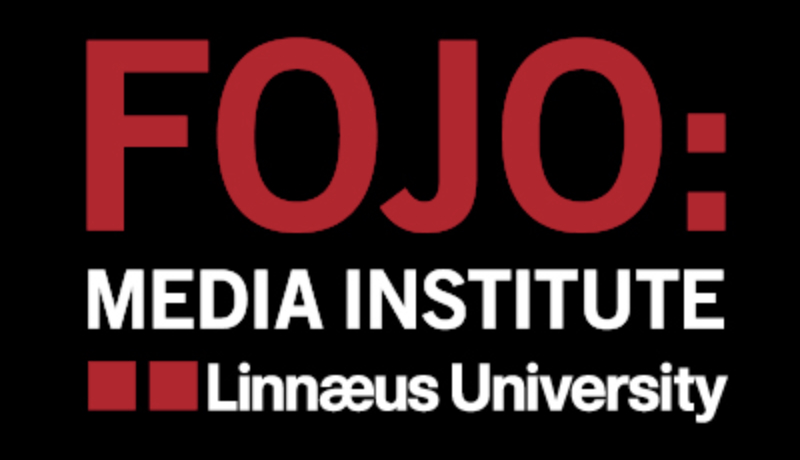
Media Helping Media is hosted by the Fojo Media Institute and is one of its official training resources.
From our BASIC JOURNALISM section
How to create a broadcast news package
Structure, timing, and letting the interview breathe are all essential elements for ensuring a TV or radio news package explores multiple elements of the story through interviewing different people.
Court reporting for beginners
Reporting on court hearings is an essential part of journalism. It requires an understanding of local laws and knowing what can be reported and what can’t.
From our EDITORIAL ETHICS section
Is your journalism ethical?
If the content you produce pushes an agenda, spins a line, favours a sector of society, is manipulated by subjective values, you are probably producing PR copy or even propaganda.
Unconscious bias and its impact on journalism
Journalists must not allow their own personal or political views to influence their pursuit of the truth. They need to remain objective and impartial, while also being aware of the dangers that unconscious biases can cause.
From our ADVANCED JOURNALISM section
How to identify and deal with fake news
Fake news is not new, it’s been around for thousands of years. Throughout history there have always been attempts to fool and confuse the public and distract attention from the truth.
Information disorder – mapping the landscape
Over recent months, there has been a surge of interest in trust and truth in a digital age. Claire Wardle of First Draft News sets out her 13 priority areas for further research.
 Unfortunately, Facebook has decided to disable our Media Helping Media Facebook group. Our Facebook page is still live.
Unfortunately, Facebook has decided to disable our Media Helping Media Facebook group. Our Facebook page is still live.
 Do you have any wisdom to share with those without access to formal training? If so please get in touch.
Do you have any wisdom to share with those without access to formal training? If so please get in touch.
 Media Helping Media (MHM) provides free training resources for those starting off in journalism. Read more …
Media Helping Media (MHM) provides free training resources for those starting off in journalism. Read more …
 The content on Media Helping Media (MHM) is released via Creative Commons BY NC SA 4.0. Please read the MHM copyright terms.
The content on Media Helping Media (MHM) is released via Creative Commons BY NC SA 4.0. Please read the MHM copyright terms.
Tips for investigative journalism
The following are some of the points from a training session given by Marcus Tanner to the Balkan Fellowship for Journalistic Excellence setting out how to produce a piece of investigative journalism.
10 tips for investigating corruption
An investigative journalist has to plot the geometry of bribery, determine the currency of influence, document the paper trail, and deal with threats and retaliation when investigating corruption.
Why would anyone want to talk to a journalist?
There may be many reasons why someone will agree to open up to a reporter, and some will be beyond their control. It's worth taking time to try to figure out the motives before interviewing them.
Convergence, workflows, roles and responsibilities
A converged newsroom operates like a content factory, responsible for all intake, production and output. It gathers and processes raw material, creates different products, and delivered them to the target audience.
Story weighting system for breaking news
Introducing a story weighting system helps prioritises effort on the stories that are of most value to the target audience, it saves time, speeds up production, and helps avoid wasted effort.
Setting up a refugee media operation in exile
This section deals with how refugee communities can set up and operate a successful news organisation in areas which are often poorly covered by the mainstream media.
Strategic forward planning for media organisations
This module looks at how media organisations need to plan ahead to produce original content that informs the public debate and covers the issues of most concern to the target audience.
The uneasy but essential evolution of news
The audience, empowered with tools to choose, create, enrich and share, is the new superuser offering alternative sources and channels of information to those of mainstream providers.
The value of thorough research for media organisations
Knowing your audience, understanding the issues they face, and being aware of what they think about society - and your media organisation in particular - are important factors for fine-tuning what you offer in order to better inform the public debate.
Dealing with emotional pressure in journalism – scenario
How should a reporter respond when someone uses emotional pressure and threats to try to stop them doing their job? In this scenario we look at a situation where a reporter is begged not to cover a story, and then threatened with violence if they publish. What would you do?
Public interest – scenario
This scenario looks at some of the issues that need to be considered when deciding whether a story is in the public interest.
Legal threats – scenario
Journalists often come under pressure with threats of legal action if they don't publish or broadcast what others want. In this scenario we look at a scenario where a reporter is sent a cease and desist letter and told legal action will be taken against them if they don't add 'positive-spin' to an article.
Five essential steps for media training
For international media training to be successful, tried, tested and proven case studies from a similar region are needed. Theory has limited value, as do examples of what works in the West.
Basic rules for delivering training
One of the first steps in delivering training is to articulate the ground rules. Participants need to know what to expect, what is expected of them and how you intend to schedule course elements.
The essential qualities of a media trainer
What it takes to be a media trainer
Media trainers must have recent, valid experience of all they teach. They need to understand the pressures...




